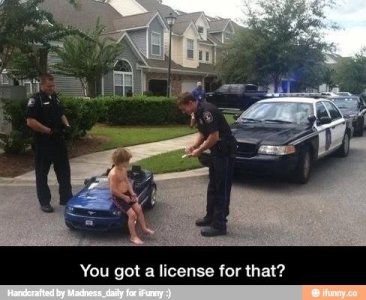MontyPython
Dorothy Mantooth is a saint!
- Joined
- Jun 28, 2019
- Messages
- 9,421
- Likes
- 13,265
The legal basis for Tennessee's lawsuit v. the NCAA seems pretty solid. Its recent action to prevent recruits from discussing NIL deals appears to violate both the spirit and intent of the Sherman Act, and lays the NCAA bare to anti-competitive lawsuits like this one.
TLDR: The NCAA is going to lose if they fight this battle.
"...Plaintiff States also each prohibit athletic associations—including the NCAA—from interfering with athletes’ ability to earn NIL compensation. Tenn. Code Ann. §49-7-2803 (athletics asociations—including the NCAA—cannot “interfere” with athletes’ ability to earn NIL compensation or otherwise limit athletes’ eligibility for doing so); Va. Code Ann. §23.1-408.1(B)(1)-(3) (athletic associations, including the NCAA, may not “prevent a student-athlete from earning compensation,” “obtaining professional representation,” or maintaining eligibility “for intercollegiate athletic competitions” for protected use of NIL rights). Plaintiffs, and many other States like them, have facilitated a vibrant and growing marketplace for NIL deals.
4. But the NCAA is thumbing its nose at the law. After allowing NIL licensing to emerge nationwide, the NCAA is trying to stop that market from functioning. This month, it announced new proposals related to “student-athlete protections in NIL.” These “protections” allow current athletes in to pursue NIL compensation. But it bans prospective college athletes (including current college athletes looking to transfer to another school who are in the “transfer portal”) from discussing potential NIL opportunities before they actually enroll. It’s like a coach looking for a new job, and freely talking to many different schools, but being unable to negotiate salary until after he’s picked one (the depressive effect on coaches’ wages in such a dysfunctional market is obvious).
5. By prohibiting such interactions, the NCAA’s current approach restricts competition among schools and third parties (often NIL “collectives”) to arrange the best NIL opportunities for prospective athletes. The NCAA bans the use of NIL contracts as a “recruiting inducement,” meaning prospective athletes cannot negotiate NIL agreements before they commit to a member institution. A prospective athlete must commit, enroll, or transfer without understanding the NIL opportunities available at the destination or comparing those opportunities to the ones at competing schools. Thus, NIL-recruiting ban limits competition and artificially decreases NIL compensation that college athletes could otherwise obtain in a free market."

TLDR: The NCAA is going to lose if they fight this battle.
"...Plaintiff States also each prohibit athletic associations—including the NCAA—from interfering with athletes’ ability to earn NIL compensation. Tenn. Code Ann. §49-7-2803 (athletics asociations—including the NCAA—cannot “interfere” with athletes’ ability to earn NIL compensation or otherwise limit athletes’ eligibility for doing so); Va. Code Ann. §23.1-408.1(B)(1)-(3) (athletic associations, including the NCAA, may not “prevent a student-athlete from earning compensation,” “obtaining professional representation,” or maintaining eligibility “for intercollegiate athletic competitions” for protected use of NIL rights). Plaintiffs, and many other States like them, have facilitated a vibrant and growing marketplace for NIL deals.
4. But the NCAA is thumbing its nose at the law. After allowing NIL licensing to emerge nationwide, the NCAA is trying to stop that market from functioning. This month, it announced new proposals related to “student-athlete protections in NIL.” These “protections” allow current athletes in to pursue NIL compensation. But it bans prospective college athletes (including current college athletes looking to transfer to another school who are in the “transfer portal”) from discussing potential NIL opportunities before they actually enroll. It’s like a coach looking for a new job, and freely talking to many different schools, but being unable to negotiate salary until after he’s picked one (the depressive effect on coaches’ wages in such a dysfunctional market is obvious).
5. By prohibiting such interactions, the NCAA’s current approach restricts competition among schools and third parties (often NIL “collectives”) to arrange the best NIL opportunities for prospective athletes. The NCAA bans the use of NIL contracts as a “recruiting inducement,” meaning prospective athletes cannot negotiate NIL agreements before they commit to a member institution. A prospective athlete must commit, enroll, or transfer without understanding the NIL opportunities available at the destination or comparing those opportunities to the ones at competing schools. Thus, NIL-recruiting ban limits competition and artificially decreases NIL compensation that college athletes could otherwise obtain in a free market."

Last edited:


